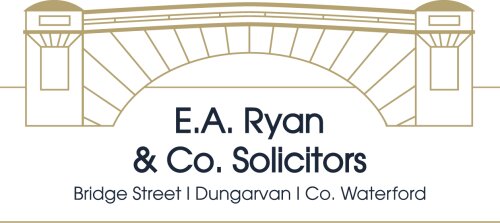Best Father's Rights Lawyers in Ireland
Share your needs with us, get contacted by law firms.
Free. Takes 2 min.
Free Guide to Hiring a Family Lawyer
Or refine your search by selecting a city:
List of the best lawyers in Ireland
About Father's Rights Law in Ireland
Father's rights in Ireland revolve around ensuring that fathers are treated fairly in matters related to the upbringing of their children. In Ireland, the rights of fathers have evolved significantly and the law recognizes the importance of both parents playing an active role in the development and care of their children. The key legislative framework includes decisions surrounding custody, access, guardianship, and maintenance, all of which aim to prioritize the welfare and best interests of the child while ensuring equality and fairness for both parents.
Why You May Need a Lawyer
There are several scenarios where a father might require legal assistance in matters related to father's rights:
- Disputes over child custody or access following separation or divorce.
- Issues surrounding the establishment of guardianship or the challenge of existing guardianship arrangements.
- Negotiations and arrangements concerning child maintenance payments.
- Legal proceedings to establish paternity or contest paternity claims.
- Situations involving international child abduction or the relocation of a child to another country without consent.
Legal assistance can provide clarity, negotiate agreements, ensure compliance with existing laws, and help protect a father's relationship with his children.
Local Laws Overview
Key components of Irish law that are relevant to father's rights include:
- Guardianship: In Ireland, a married father automatically has guardianship rights, while an unmarried father may need to apply for guardianship or agree with the mother to be appointed as a guardian.
- Custody and Access: Custody decisions are made based on the best interests of the child, and both parents are encouraged to participate equitably unless circumstances dictate otherwise. Access is the right of a parent who does not have custody to spend time with the child.
- Paternity: Establishing paternity is crucial for grounding rights such as access, custody, or guardianship, and can be established through various legal means including DNA testing or voluntary acknowledgment.
- Child Maintenance: Parents are obligated to financially support their children, where maintenance agreements can be arranged privately or through legal channels.
- International Matters: Legal frameworks like The Hague Convention protect children from international abduction and ensure their prompt return if wrongfully removed.
Frequently Asked Questions
What rights do unmarried fathers have in Ireland?
Unmarried fathers do not automatically have guardianship rights. They can gain these rights through a legal agreement with the mother or by applying to the court.
Can a father get full custody of his child?
Yes, a father can seek full custody. The court will decide based on the child's best interests, considering factors such as the child’s welfare, emotional needs, and safety.
How can I establish my paternity legally?
Paternity can be established through mutual acknowledgment with the mother or by a court order, often utilizing DNA testing as evidence.
What should I do if I am denied access to my child?
If access is being unfairly restricted, the father can apply to the court for access or variation of access orders as needed.
Do I have to pay child maintenance if I do not have custody?
Yes, non-custodial parents are typically required to contribute to the financial upkeep of their children through maintenance payments.
What is the process for getting joint guardianship?
Joint guardianship can be achieved through mutual consent and the registration of a statutory declaration of joint guardianship or obtained through a court order.
Can I prevent my child from being relocated abroad?
Relocation requires the consent of all guardians or a court order. A father can challenge an intended relocation by applying to the court.
How long does a custody process take?
The length of custody proceedings can vary significantly depending on the complexity of the case and court schedules.
Is legal aid available for fathers pursuing custody or access cases?
Legal aid may be available for eligible fathers who meet the financial and legal criteria set by the Legal Aid Board in Ireland.
How can I apply for a variation of a current custodial order?
To modify an existing custody order, an application must be made to the court demonstrating the necessity due to changed circumstances.
Additional Resources
For those seeking additional information or services related to father's rights, consider exploring the following:
- The Legal Aid Board of Ireland for potential legal assistance.
- Family Mediation Service for negotiation and dispute resolution support.
- Treoir - the National Federation of Services for Unmarried Parents and their Children for information and guidance specific to unmarried fathers.
- Citizens Information for details on family law procedures and rights.
Next Steps
If you need legal assistance regarding father's rights, consider the following steps:
- Consultation: Schedule a consultation with a solicitor who specializes in family law to discuss the specifics of your situation.
- Preparation: Gather all necessary documentation and information pertinent to your case, including any existing agreements or court orders.
- Legal Aid Evaluation: Determine your eligibility for legal aid and apply if you meet the criteria.
- Mediation and Negotiation: Explore alternative dispute resolution options if appropriate, to reach amicable arrangements outside the courtroom.
- Proceed with Legal Action: If necessary, your solicitor will guide you through the legal processes required to enforce or modify custodial rights or other related issues.
Lawzana helps you find the best lawyers and law firms in Ireland through a curated and pre-screened list of qualified legal professionals. Our platform offers rankings and detailed profiles of attorneys and law firms, allowing you to compare based on practice areas, including Father's Rights, experience, and client feedback.
Each profile includes a description of the firm's areas of practice, client reviews, team members and partners, year of establishment, spoken languages, office locations, contact information, social media presence, and any published articles or resources. Most firms on our platform speak English and are experienced in both local and international legal matters.
Get a quote from top-rated law firms in Ireland — quickly, securely, and without unnecessary hassle.
Disclaimer:
The information provided on this page is for general informational purposes only and does not constitute legal advice. While we strive to ensure the accuracy and relevance of the content, legal information may change over time, and interpretations of the law can vary. You should always consult with a qualified legal professional for advice specific to your situation.
We disclaim all liability for actions taken or not taken based on the content of this page. If you believe any information is incorrect or outdated, please contact us, and we will review and update it where appropriate.
Browse father's rights law firms by city in Ireland
Refine your search by selecting a city.













